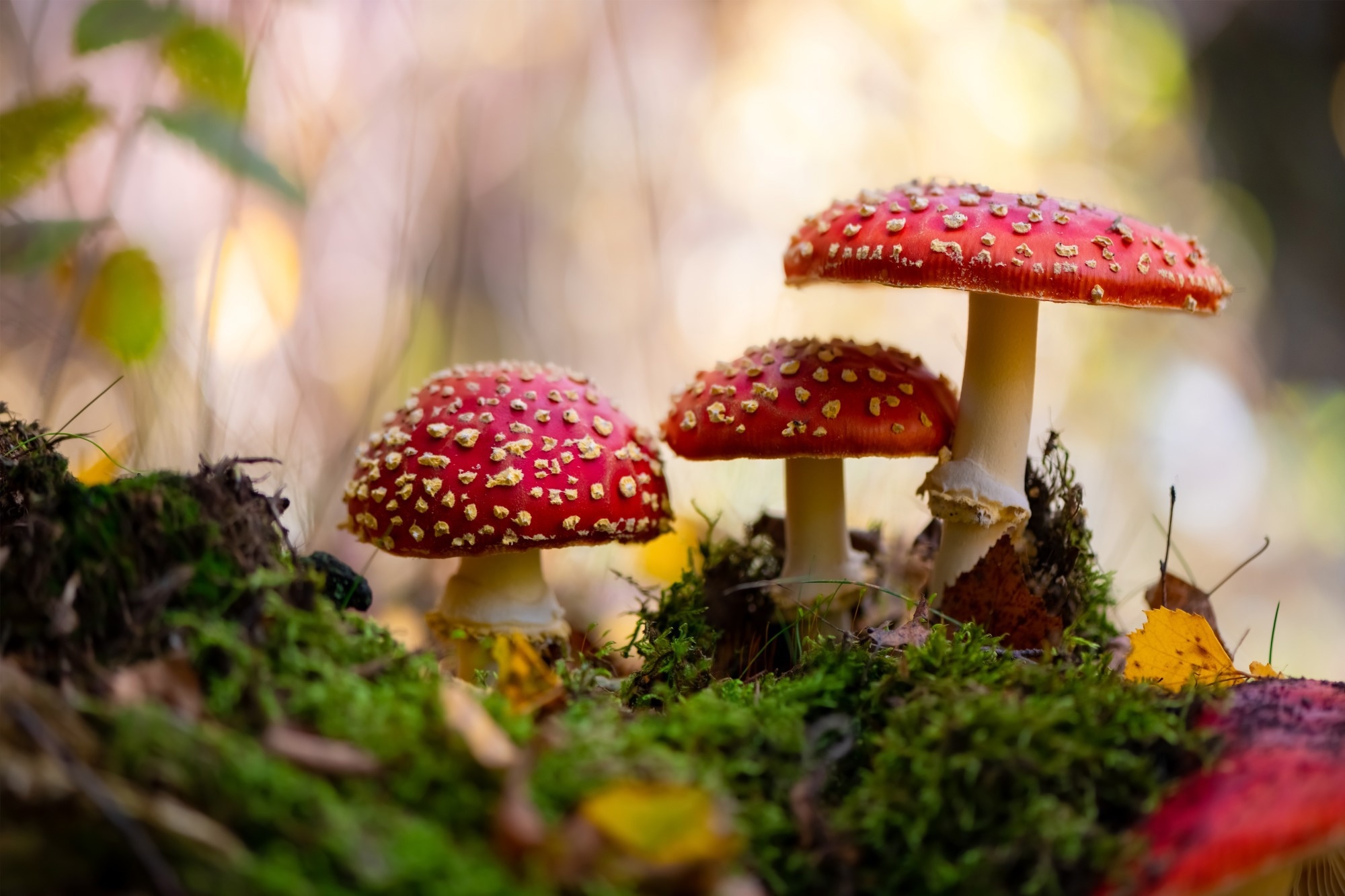Despite this, none of them feature in the 1970 Controlled Substance Act in the United States or similar laws in other countries.
A recent American Journal of Preventive Medicine study discussed the legal status, safety, and availability of Amanita muscaria, to motivate the case for its improved regulation.
 Study: Need for a Public Health Response to the Unregulated Sales of Amanita muscaria Mushrooms. Image Credit: ON-Photography Germany/Shutterstock.com
Study: Need for a Public Health Response to the Unregulated Sales of Amanita muscaria Mushrooms. Image Credit: ON-Photography Germany/Shutterstock.com
History and current availability of Amanita muscaria
Amanita muscaria can be widely found in multiple continents within the Northern Hemisphere. Their use in Siberia by the old-world shamans predates crossing the Bering Straits into North America. Post this, the new world shamans preferred the use of Psilocybe spp. Mushrooms and the use of Amanita muscaria waned off.
Online access to Amanita muscaria and muscimol products is a relatively new phenomenon. The muscimol products include dessert-flavored vapes, candy-flavored gummies, and pre-rolls blended with muscimol and hemp flower.
The online demand seems to be growing, as evidenced by the rise in the number of online advertisements. For example, between 2022 and 2023, the number of Amanita muscaria Google searches rose by 114%.
Safety issues concerning the use of Amanita muscaria
As mentioned above, muscimol, ibotenic acid, and muscarine contained in Amanita muscaria are toxic and can be fatal in high doses.
Concerning the acute toxicities of ibotenic acid and muscimol, research showed that these are higher than most commonly used psychotropic drugs, such as cocaine, fentanyl, and phencyclidine.
Human studies have analyzed the impacts of raw Amanita muscaria mushroom intake. While death is rare, the effects include agitation, ataxia, visual hallucinations, dizziness, seizures, dysphoria, muscle fasciculation, and coma.
Amanita muscaria’s psychotropic properties are due to muscimol and not ibotenic acid. Muscimol primarily affects the forebrain regions, leading to nausea, dizziness, tiredness, weightlessness, space distortion, visual and auditory hypersensitivity, hallucinations, and so on.
“Classical psychedelics” like psilocybin could also lead to similar effects, but the main difference is that, unlike classical psychedelics, muscimol does not engage with serotonin 5-HT2A receptors.
In the United Kingdom, the first reported hospitalization was in 2023 when a 46-year-old woman, following a “microdosing” regimen, consumed 0.5 grams of the dried mushroom daily for two weeks.
The aim was to reduce anxiety by inducing psychotropic properties. The lady had purchased the mushroom via social media. Such cases highlight the easy availability of the mushroom and the need for proper regulation.
Current regulatory status and consumer protection
The Netherlands and some other countries recognize Amanita muscaria and Amanita pantherina as controlled substances. Here, websites often contain interpretations of controlled substance laws in order to provide legal guidance to consumers.
In the context of the United States, Amanita muscaria and muscimol are included in a list of prohibited hallucinogenic substances only in the state of Louisiana.
Sevaral muscimol and Amanita muscaria products are disguised and sold as food products. No NDI (New Dietary Ingredient) or GRAS (Generally Recognized as Safe) notifications exist for these ingredients.
It could be that manufacturers have self-affirmed GRAS, but that seems inconsistent with the safety data reported in the current study. Based on this, the muscimol and Amanita muscaria products in the market violate Food and Drug Administration (FDA) regulations.
Consumer protection is the key issue, which might be at risk given how Amanita muscaria products are sold. The current regulatory approach has no age restriction or mandatory child protection.
Marketing using means that appeal to children (e.g., cartoons) should be banned. Currently, manufacturers claim to test for the quantities of active constituents and contaminants, but there are no universally accepted testing standards for muscimol for potency, leading to inaccurately labeled products.
Conclusions
Considering the easy availability and the safety concerns around the use of Amanita muscaria, a new regulatory approach should be developed.
A clear stand from regulators is essential concerning the legality of the manufacture and distribution of such products. If legal, more information should be provided about the age and marketing restrictions, maximum dosage, and childproofing.
More education is needed for mental health professionals to enable them to guide their patients effectively and explain the differences between toxic substances like Amanita muscaria, and psilocybin, which is being researched for its potential role in treating depression.
A public health response should come immediately because delayed enforcement is profitable for manufacturers in this “buyer beware” marketplace.